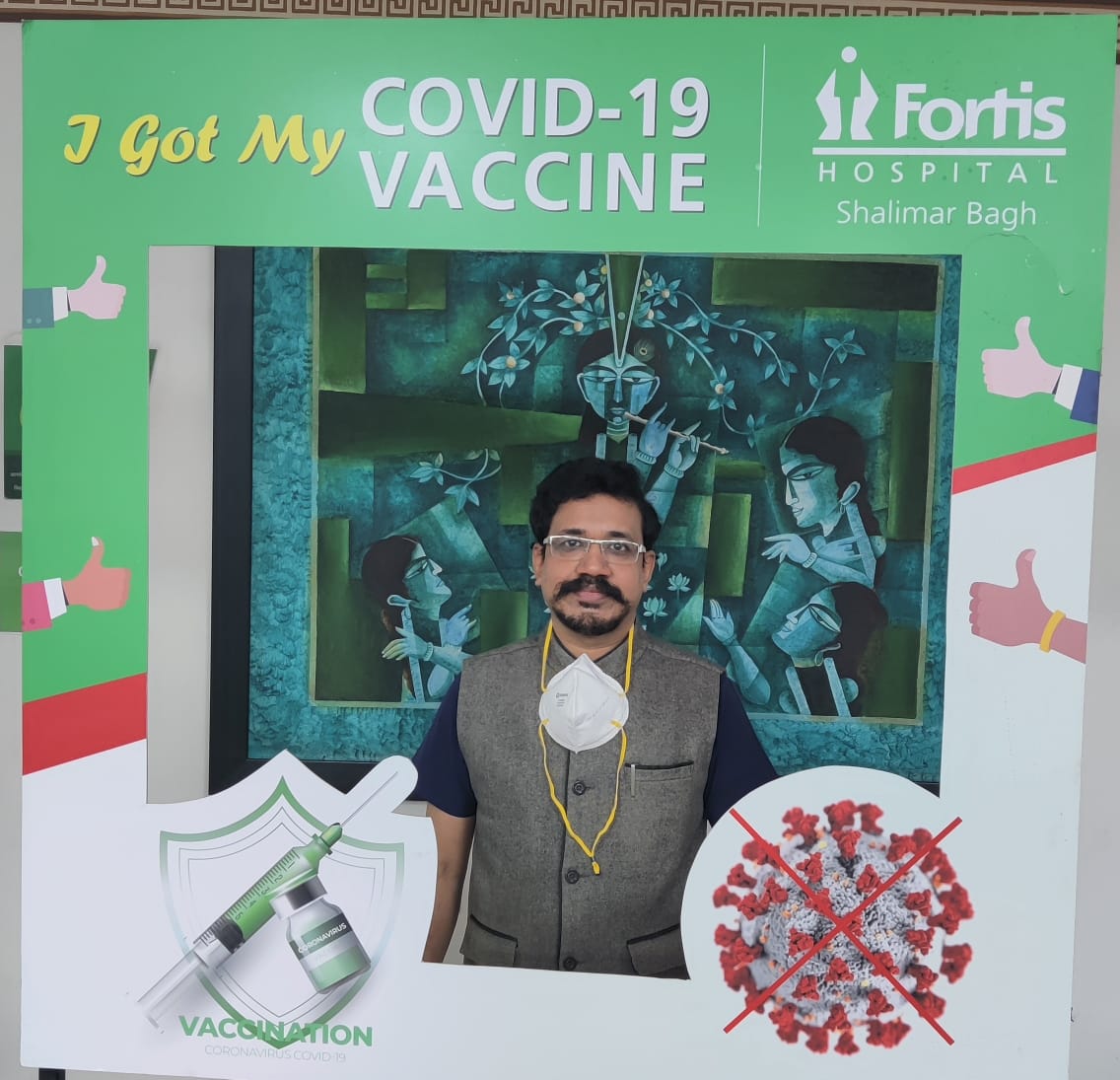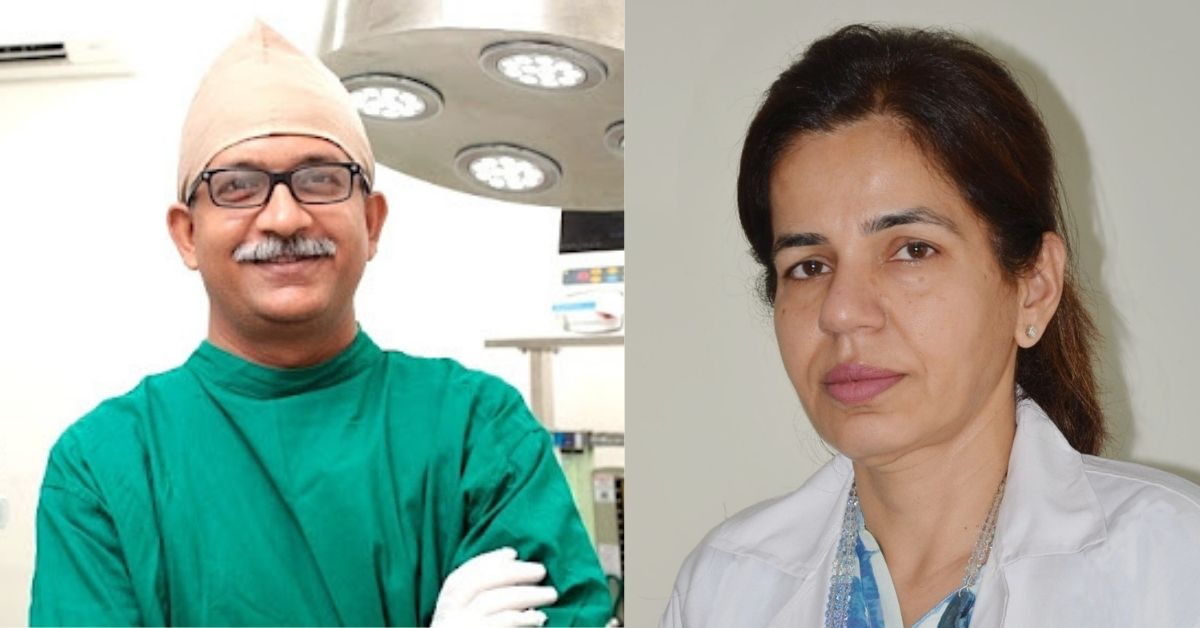What Happens If You Take a Third Shot of The COVID-19 Vaccine? Doctors Answer
Dr Vikas Maurya, Dr Mala Kaneria and Dr Sunil Jain help us understand whether we need to take the booster shot against COVID-19 for better immunity against the virus.

As of now, the official government data on vaccination suggests that 9.6 per cent Indians are fully vaccinated. While the vaccination drive continues in India, other countries where the number of vaccinated individuals is the highest, like Israel, are considering administering a third booster shot.
While an Israeli study found that the third dose of Pfizer’s vaccine is 86 per cent effective in people aged over 60, preliminary data from an Oxford University-led study evaluating the AstraZeneca vaccine has also found that the third dose of the jab boosts antibodies against COVID-19.
Dr Vikas Maurya, Director and Head of Department, Pulmonology, Fortis Hospital, Shalimar Bagh, says, “The issue is not just about whether or not a third shot is needed, we also have to consider whether there are enough vaccines for the first and second shot for our entire population to begin with.” Once we get past the availability, Dr Maurya says that he is of the opinion that a booster shot will most certainly offer better protection. “With all respiratory viruses, the effect of the vaccine wanes off in a few months and therefore a shot will be required periodically.”
Research also needs to be done to ascertain whether the third shot should be of the same vaccine taken earlier or not.
“With each wave throwing up a new strain of virus the vaccine should also be one that is able to tackle the newer strains,” says Dr Maurya.

Adding to this point, Dr Mala Kaneria, Consultant, Department of Infectious Diseases, Jaslok Hospital and Research Centre, says, “Studies have shown that vaccine induced antibodies are likely to decline in 8 to 10 months. Booster doses are currently recommended in the high-risk groups such as the elderly and the immunocompromised, who are thought not to have had a robust antibody response with two doses.”
She goes on, “The effects of waning immunity will show in the Health Care Workers (HCW) and Front Line Workers (FLW) who were vaccinated in the early stages of the vaccination drive. Eventually, booster shots will be recommended not only for this special group but possibly for all individuals.”
Explaining the working of the booster doses, Dr Kaneria says, “The booster shot will rapidly ramp up the antibodies, systemically as well as locally, in the nose and throat, which would act as the first line of defense and thus offer protection.”

Dr Sunil Jain, Head of Emergency Medical Services (EMS), Jaslok Hospital and Research Centre, also comments on the efficacy and need for the booster shot saying, “With respect to the booster shot, given that we are anticipating the third wave to hit us in September/October, those who are fully vaccinated are certainly better protected against COVID and the Delta variant. This is when compared to those who are not vaccinated or have had only one shot so far.” He says that the vaccine only offers protection against the virus and does not mean that one can let their guard down.
He speaks about Israel, where the booster shot is being administered to certain people — whose immunity is lowered, those who are above 60 years of age and patients on chemotherapy or kidney transplant. “In India, we still do not have sufficient data on whether or not this third shot is required. However, those at a higher risk of contracting COVID and in whom the antibodies are lower getting the third shot might be beneficial,” he says.
He also leaves us with a word of caution by saying that since we do not have enough data on the need for the booster shot, one cannot be sure of what the repercussions or adverse impact it might have.
The World Health Organisation (WHO) earlier this month released an interim statement on the need for the third shot, which read, “To date, the evidence remains limited and inconclusive on any widespread need for booster doses following a primary vaccination series. WHO is carefully monitoring the situation and will continue to work closely with countries to obtain the data required for policy recommendations.”
(Edited by Yoshita Rao)
If you found our stories insightful, informative, or even just enjoyable, we invite you to consider making a voluntary payment to support the work we do at The Better India. Your contribution helps us continue producing quality content that educates, inspires, and drives positive change.
Choose one of the payment options below for your contribution-
By paying for the stories you value, you directly contribute to sustaining our efforts focused on making a difference in the world. Together, let’s ensure that impactful stories continue to be told and shared, enriching lives and communities alike.
Thank you for your support. Here are some frequently asked questions you might find helpful to know why you are contributing?


This story made me
-
97
-
121
-
89
-
167













